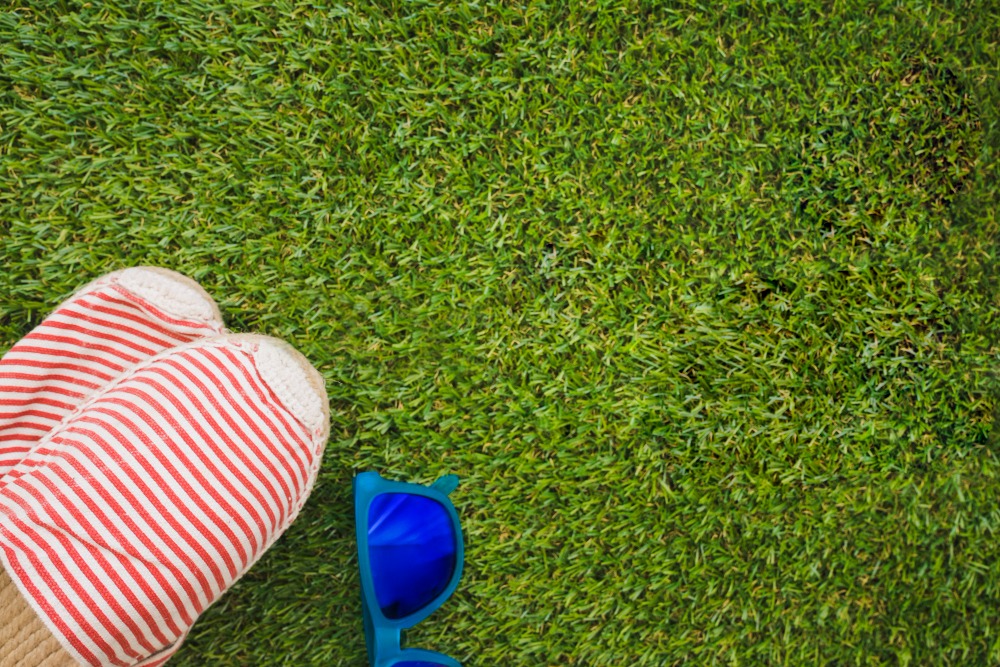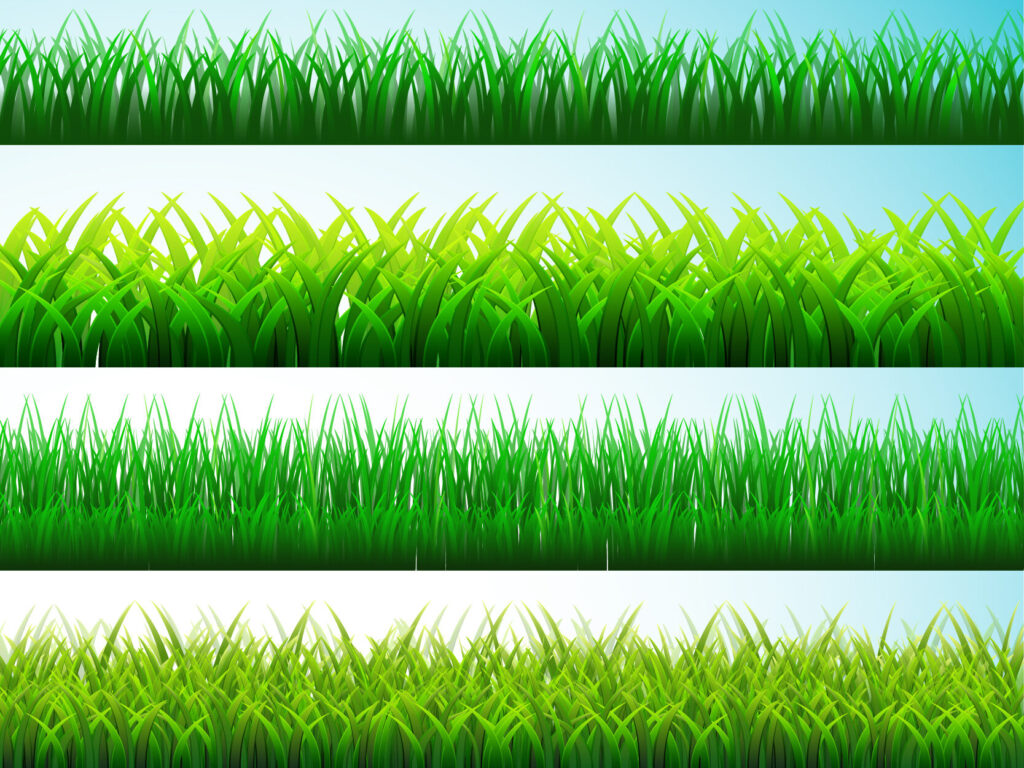
Prevent Artificial Grass Smell
Artificial grass is a fantastic option for many homeowners, offering a low-maintenance, evergreen lawn that looks great all year round. However, like anything else, it comes with its own set of challenges. One common issue I’ve encountered is unpleasant smells emanating from the grass. It can be quite the surprise, especially when you’re expecting a fresh, clean yard. That’s why I wanted to share some tips on preventing and managing these odors so you can keep your artificial lawn smelling as good as it looks.
Understanding the Causes of Artificial Grass Smell
One of the main culprits behind artificial grass odor is pet urine. If you have dogs, you’ll know they tend to go in the same spot repeatedly, and over time, this can lead to a build-up of odors. I remember noticing a particularly strong smell one summer and realizing it was due to my dog’s favorite bathroom spot.
Mold and mildew can also be problematic, especially if the grass doesn’t dry out properly. This can happen if you’ve had a lot of rain or if your lawn is in a shaded area that doesn’t get much sunlight. I had a patch in my backyard that always seemed damp, and it turned out to be a breeding ground for mildew.
Inadequate drainage is another factor that can lead to smells. If water isn’t draining properly, it can stagnate and create a musty odor. When I first installed my artificial grass, I didn’t pay much attention to the drainage system, and I quickly learned my lesson when my lawn started to smell after a few rain showers.
Lastly, environmental factors like heat and rain can contribute to the problem. High temperatures can intensify any existing odors, while frequent rain can cause waterlogging if your drainage isn’t up to scratch. I’ve found that keeping an eye on the weather and doing some preventive maintenance can make a big difference.
Proactive Measures to Prevent Odors
Choose High-Quality Artificial Grass
When I first decided to go for artificial grass, I quickly learned that not all products are created equal. Choosing high-quality artificial grass can make a big difference in preventing odors. Look for grass with antimicrobial properties, which help inhibit the growth of bacteria that can cause smells. Also, prioritize grass with excellent drainage capabilities. I found that investing a bit more upfront saved me a lot of trouble down the line.
Professional Installation Tips
Getting your artificial grass professionally installed is another smart move. I can’t stress enough the importance of proper base installation. When my grass was installed, the pros made sure the base was perfectly leveled and compacted, which is crucial for good drainage. Ensuring that water can easily flow through and away from the grass helps prevent stagnant water and the associated smells. It’s one of those steps that you don’t want to cut corners on.
Regular Maintenance Routine
A consistent maintenance routine is key to keeping odors at bay. I’ve made it a habit to regularly clean my artificial lawn, and it has made a huge difference. I use a pet-friendly enzyme cleaner to tackle any areas where my dog goes to the bathroom. These products are great because they break down the organic matter, causing the smell rather than just masking it. A quick rinse with the hose once a week also helps keep things fresh.
In short, by choosing high-quality materials, ensuring proper installation, and sticking to a regular cleaning routine, you can enjoy your artificial grass without the worry of unpleasant odors.
Detailed Steps to Prevent Odors
Frequent Rinsing
One of the simplest ways to keep your artificial grass smelling fresh is to rinse it down regularly. Frequent hosing helps wash away any debris, dust, and pet urine that might be lingering on the surface. I’ve found that a quick rinse every few days works wonders, especially during the warmer months when smells can intensify. Just grab your garden hose and give your lawn a good spray, making sure to cover all areas.
Using Vinegar or Enzyme-Based Cleaners
For those times when a regular rinse isn’t enough, you can turn to some effective cleaning solutions. Vinegar is a great DIY option. I mix one part vinegar with one part water in a spray bottle and apply it to any smelly areas. Let it sit for about 10–15 minutes, then rinse it off with the hose. It’s simple and uses ingredients you probably already have at home.
Enzyme-based cleaners are another fantastic option. These products are specifically designed to break down organic matter, like pet urine. I use a pet-friendly enzyme cleaner, and it works like a charm. Spray the cleaner on the affected area, let it sit as per the instructions on the bottle, and then rinse thoroughly. It’s a bit more effort than vinegar, but it’s highly effective for stubborn odors.
Applying Turf Deodorizer
If you’re looking for an extra layer of protection, consider using a turf deodorizer. These products come in various forms, such as granules or sprays, and are designed to neutralize odors rather than just mask them. I’ve tried a few different types and found that granule deodorizers are easy to apply and very effective.
To apply, simply sprinkle the granules evenly over your artificial grass. I like to do this after a thorough cleaning session. Follow the instructions on the product for the best results. For sprays, just apply them as you would any other cleaner, focusing on areas prone to odor.
By following these detailed steps, you can ensure that your artificial grass remains fresh and odor-free, making it a pleasant space for you and your family to enjoy.
Addressing Specific Odor Issues
Dealing with Pet Urine
If you have pets, you know that dealing with urine is a common issue. Quick clean-up is essential to prevent odors from setting in. As soon as you notice your pet has done their business, grab the hose and rinse the area thoroughly. This simple step can go a long way in preventing smells.
For more stubborn odors, there are products specifically designed for pet urine. I’ve had great success with enzyme-based cleaners. These products break down the urine at a molecular level, eliminating the smell entirely. Just spray the cleaner on the affected area, let it sit according to the instructions, and then rinse it off. It’s a quick and effective solution that keeps my yard smelling fresh.
Managing Mold and Mildew
Mold and mildew can develop in areas where moisture accumulates, especially if the drainage isn’t optimal. This was a big problem for me in a shaded part of my yard. The causes are pretty straightforward: moisture plus lack of sunlight equals mold and mildew.
Prevention starts with good drainage. Make sure your artificial grass is properly installed with a suitable base that allows water to flow away easily. Regularly rinsing your grass, especially after heavy rain, helps too. If you do find mold or mildew, a mixture of water and vinegar can help clean it up. Spray the solution on the affected area, let it sit for about 10 minutes, then rinse thoroughly. For more persistent issues, there are commercial mold and mildew removers available.
When to Call a Professional
Sometimes, despite your best efforts, the smell just won’t go away. That’s when it’s time to call in the professionals. Look for signs that you need expert help, such as persistent odors that don’t respond to cleaning, visible mold or mildew growth that you can’t control, or drainage problems causing standing water.
Artificial grass maintenance specialists offer a range of services, from deep cleaning and deodorizing to repairing drainage issues. They have the tools and expertise to handle even the toughest odor problems. When I had a persistent smell that I couldn’t get rid of, calling in a professional made all the difference. They thoroughly cleaned my lawn and addressed the underlying drainage issue, and I haven’t had a problem since.
By addressing specific odor issues promptly and knowing when to seek professional help, you can keep your artificial grass smelling great and enjoy your outdoor space to the fullest.
LATEST POSTS
FAQs about Artificial Grass Smell
Does artificial grass smell bad after rain
Rain itself doesn’t cause artificial grass to smell bad, but it can contribute if there’s poor drainage. If water doesn’t drain properly, it can lead to mold and mildew, which cause odors. I’ve found that ensuring good drainage during installation and regularly hosing down the grass after heavy rain helps prevent any bad smells.
How do I clean solid waste from artificial grass?
Cleaning solid waste from artificial grass is straightforward. First, use a plastic bag or scoop to pick up the waste, just like you would on natural grass. Then, rinse the area with water to ensure any residue is washed away. For a deeper clean, you can use a mild soap solution or an enzyme cleaner. This routine keeps my yard clean and fresh without much hassle.
Can I use bleach on artificial grass
While bleach can be effective for killing bacteria, it’s not recommended for artificial grass as it can damage the fibers and the backing material. Instead, opt for a pet-friendly enzyme cleaner or a vinegar solution. These options are safe and effective without the risk of causing damage. I’ve always stuck to these safer alternatives and never had any issues.
How often should I clean my artificial grass?
The frequency of cleaning your artificial grass depends on its usage and the environmental conditions. For most residential lawns, a thorough cleaning once a week is sufficient. This includes hosing down the grass and using a mild cleaner on any spots that need extra attention. I’ve found that keeping up with a regular cleaning schedule prevents any build-up of debris or odors.
What are the best cleaning products for artificial grass?
The best cleaning products for artificial grass are those that are gentle yet effective. Pet-friendly enzyme cleaners are great for tackling organic matter like pet urine. Vinegar solutions (one part vinegar to one part water) are excellent for general cleaning and deodorizing. Avoid harsh chemicals like bleach, as they can damage the grass. I stick with these products, and they’ve worked wonders for me.
How can I prevent my artificial grass from smelling in the first place?
Preventing smells from developing in your artificial grass starts with proper maintenance. Choose high-quality grass with good drainage capabilities, ensure it’s installed correctly, and maintain a regular cleaning routine. Rinse your grass frequently, especially in areas where pets go to the bathroom, and use enzyme cleaners as needed. I’ve found that being proactive with these steps keeps my artificial grass smelling fresh and clean all year round.

